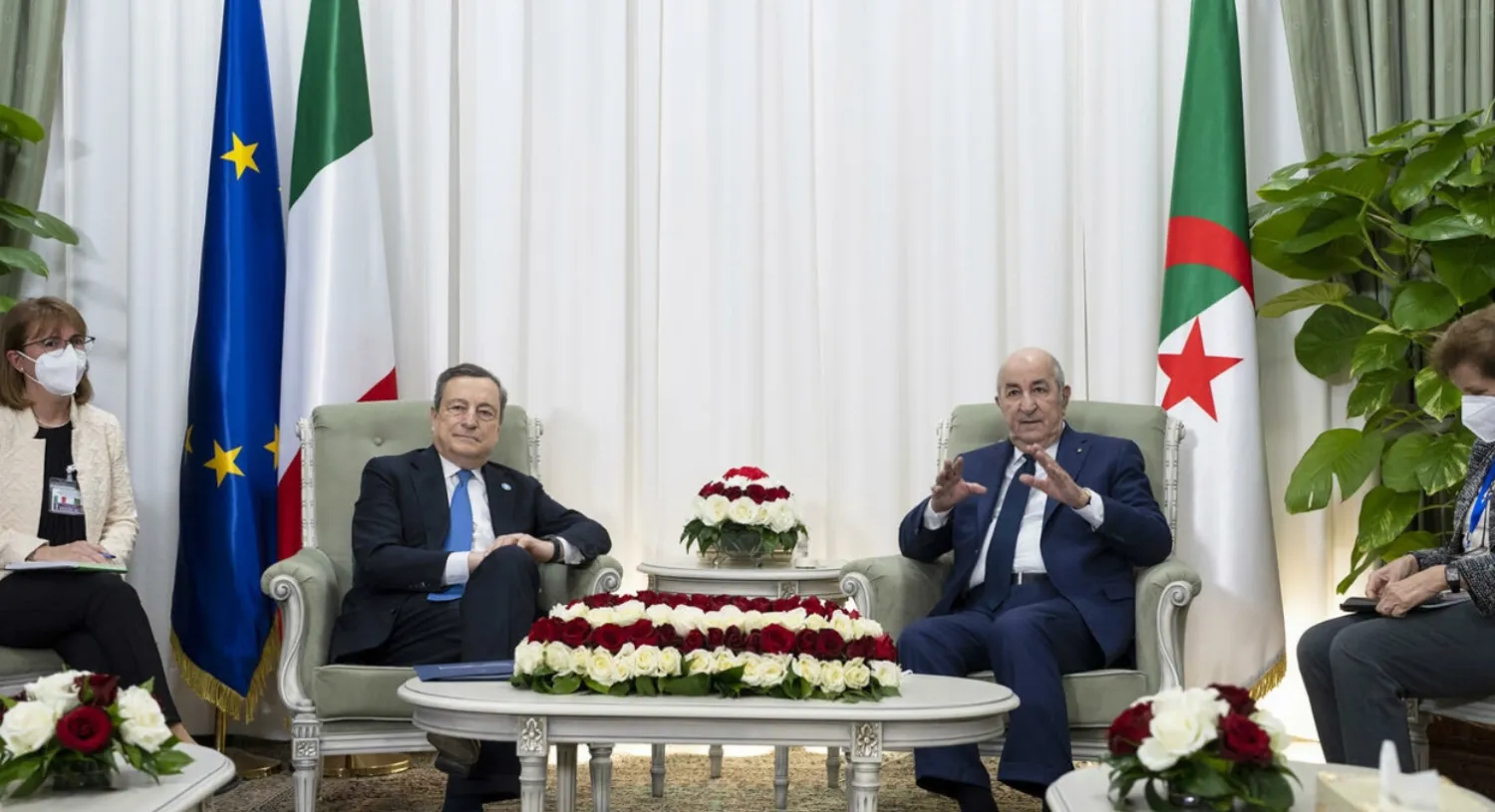Italian Prime Minister Mario Draghi announced a deal on Monday to boost gas deliveries from Algeria, as he steps up efforts to reduce Rome's heavy reliance on Russian imports.
Addressing journalists after meeting President Abdelmadjid Tebboune, Draghi told journalists the two governments had signed a preliminary deal on energy cooperation.
"There is also a deal between ENI and Sonatrach to boost gas exports to Italy," he said, referring to the Italian energy giant and Algeria's state hydrocarbons firm.
The firms agreed to boost gas exports through the Transmed undersea pipeline starting this autumn, gradually "increasing volumes of gas... up to 9 billion cubic meters per year in 2023-24", ENI said in a statement.
The Ukraine war has sparked a Western push for sanctions against Moscow, including moves to drastically cut purchases of Russian gas.
Italy buys the vast majority of its natural gas from overseas, and is one of the most Russia-reliant gas importers in Europe, with over 40 percent of its imports coming from the country.
But Italy also imports significant amounts from Algeria, including some 6.4 billion cubic meters of Algerian gas during the first quarter of 2021, a 109 percent uptick from the previous year.
The war in Ukraine and the subsequent campaign of Western sanctions have prompted Rome to step up the search for alternative sources, with gas giant Algeria an obvious option.
"Immediately after the invasion of Ukraine I announced that Italy would organize quickly to reduce its dependence on Russian gas," Draghi said.
"The deals today are a significant response to reach this strategic goal, and others will follow."
Draghi arrived in Algeria weeks after Foreign Minister Luigi Di Maio made the same trip, during which he confirmed that Italy was "committed to increasing energy supplies, notably in gas", including from Algeria, which he said had "always been a reliable supplier".
Algeria's Sonatrach said at the time that it was prepared to increase deliveries, notably via the Transmed pipeline linking Algeria to Italy.
Its CEO Toufik Hakkar said Europe is the "natural market of choice" for Algerian gas, which accounts for about 11 percent of Europe's gas imports.
But he said any boost to exports would depend on first satisfying Algeria's ever-growing domestic needs.
Sonatrach and Italy's ENI jointly operate the Transmed pipeline, which has a capacity of some 32 billion cubic meters per year.
According to AFP, Algeria expects to invest some $40 billion on gas and oil exploration, production and refining between 2022 and 2026.
Draghi did not say how much exports were to be boosted under Monday's deal.
The two countries have a contract for gas deliveries up until 2027.
Draghi said last week that Italy would "follow the decisions of the European Union" on new sanctions against Russia, including a possible gas embargo.









